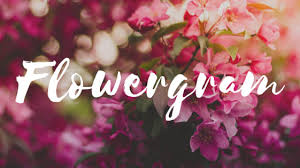flowers don't tell, they show
- Craig J A

- May 28, 2022
- 4 min read
The flower company is an excellent example of entrepreneurial success. Due to its low initial investment and non-discriminatory nature, it's one of the most significant businesses to venture in. The Chelsea Flower Show exemplifies the industry's significance which you can see on the video below. The floristry industry will always be blooming (no pun) because christenings, Valentines Day, weddings and special events would not be the same without an array of flowers. What is also an interesting fact is even though flowers are used for special occasions, over half the money spent on flower is people buying them for their homes. Petal Republic states The worldwide market for Flower and Ornamental Plants (those that are grown for the primary purpose of being sold as cut flowers, houseplants and in landscape design) is expected to grow roughly 6.3% over the next five years, reaching $57.4 Billion USD in 2024, up from $42.4 Billion USD in 2019. We can now begin to understand why the flower industry is forever blossoming (no pun again).
There are many courses you can take to not only learn about the industry as a business and how to enter, but how to perfect your craft i.e. arranging your flowers, needed equipment, and what services you need to offer in order to be successful. These courses may offer an official diploma/certificate that shows you have gone through extensive training in order to become a skilled florist. If you click on the image just below it will take you to a florist course that will help you with: creating your own shop, marketing your services, the industry as a whole and learning about your customers. If you are brand new to the industry it could be within your interest to invest in a course and uncover a hidden talent.
Another way to enter the industry is learning on the job as an apprentice. The Trailblazer Group for example as a 2 year Florist apprenticeship which is great because you don’t have to pay for your course. The bill is shared between your employer and the government. Apprenticeship can teach you very specific skills such as: the correct botanical names, how specific plants are grown/maintained, price structure of plants, correct transportation of plants and more.
Although there are a range of certificates and diplomas within the floristry industry, there are skills within yourself that you would need to develop. You would need to be an early riser, develop a lot of stamina, develop dexterity and strength (a full florist's bucket weighs about 15-20 kg). You cannot be afraid to get dirty. You would need to have good people skills to deal with bereaved people ordering wreaths, or brides-to-be deciding on their wedding flowers.
Team Flower highlight the benefits of becoming a florist and not just from a monetary standpoint. Working with flowers allows you to bring out your creative side, a greater connection with nature and meeting new people who share similar interests. This sounds great for enthusiastic florists but Rachel King on the video below also highlights some important things to consider when entering the industry. Additionally you need to decide what sort of florist you are going to be, what you're going to sell, and who you're going to sell to. Are you going to sell purely to the general public, form part of a relay scheme, take on contract work with local businesses and functions or a combination of some or all of these avenues?
Startups.co.uk highlight very niche considerations when starting a floral business - the location of your store. "Do you want passing trade in a more urban environment or would you prefer people to come and find you in a more rural location? Locating next to a hospital, railway station or just off the high street can bear fruit".
You would need to research the competition around you, such as your scanning your area for other specialist florists, nurseries, garden centres, DIY stores, petrol stations, convenience stores, supermarkets and home delivery services. This can help define your brand.
Probably one of the most important things to consider is where will you actually get your flowers from and who will be your wholesaler? The Netherlands have dominated the global production of cut flowers but developing nations such as Colombia, Ecuador, and Kenya are rapidly emerging. Ecuador for example is the biggest producer and exporter of commercial roses in the world despite only accounting for 9% of global flower production in 2018.

Furthermore we have trade associations such as the British florist association/institute of florist
proffesional -The BFA welcomes manufactures, growers, wholesalers, suppliers, and service providers Worldwide, it upholds the professional status of florists in the UK by maintaining consistently high standards within the floristry industry through training and qualifications. Their aims and objectives are summarised in the diagram to the right.
A lot of floristry businesses belong to relay organisations mentioned earlier, they provide support in marketing & sales, product & design, and international links; they allow the business to compete with multi-national firms, and respond to a changing market. You can click on the below images below to have a look at a few of these
organisations such as Interflora, teleflora
and flowergram.
Begin your flower company with a solid foundation of florist knowledge first at is a competitive industry to enter, and then let your imagination soar from there. You may employ designers to work in your flower business if you aren't skilled at creating bouquets and arranging flowers. Don't forget to file a company registration form. Floral design, marketing, internet sales, and regular order sources are the key to success in this industry. For any florists reading this post please feel free to send in pictures of your designs I would be interested to look at them.








Comments